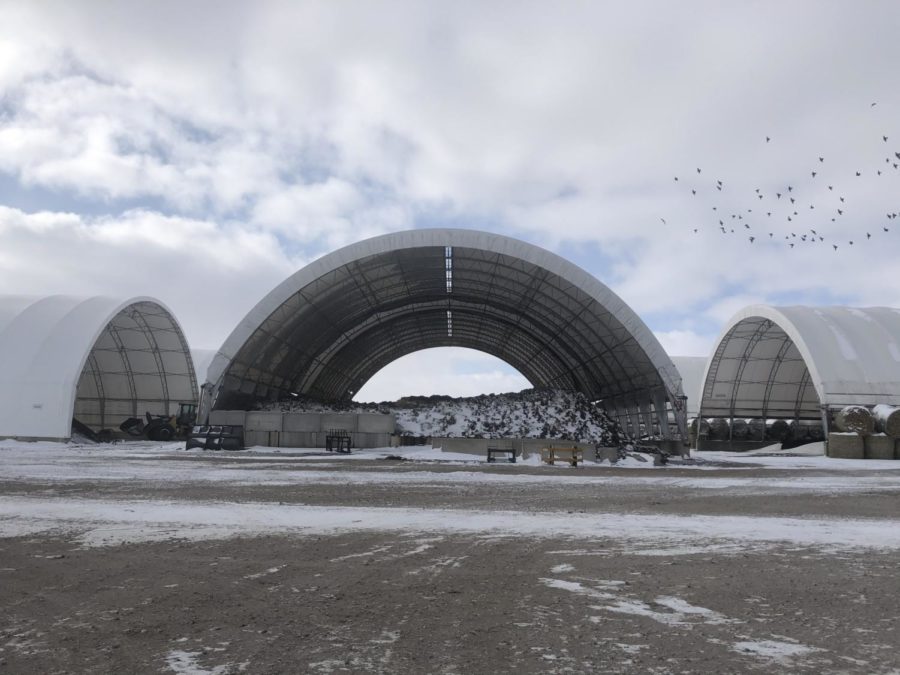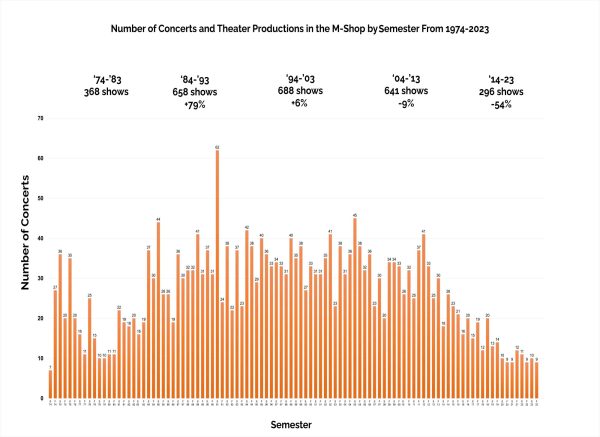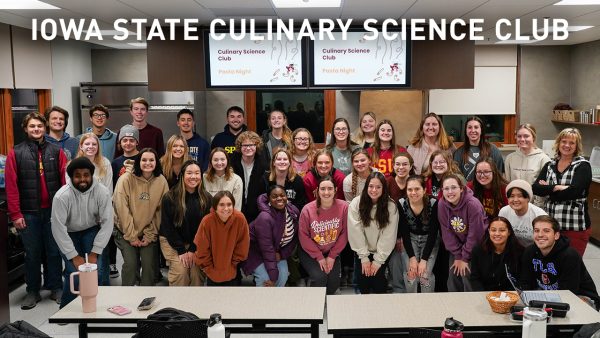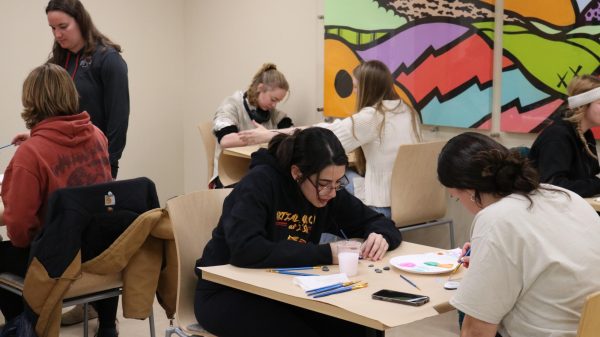Dining halls strive to be more sustainable
Whitney Spencer / Iowa State Daily
Originally built in 2008 as an addition to Iowa State’s dairy farm, Iowa State’s composting facility accepts waste from several departments on campus, including the dining halls.
November 17, 2019
ISU Dining is hard at work in reducing waste in their facilities. ISU Dining centers feed thousands of students and faculty each day, leaving many to question truly how sustainable they strive to be. The centers practice a variety of methods to achieve a more sustainable outcome.
Hunter Penton, junior studying accounting, is currently employed at Union Drive Marketplace. He stated that the dining halls work hard to be sustainable, offering several recycling bins and compost bins for excess scraps.
“Excess food, waste, trash, recyclables, all have their own respective dumpster or bin or something outside, behind the dining hall,” Penton said. “I am not sure as to how much food gets tossed, but I know a ton of food gets composted; at least two to three large garbage cans get filled with food or napkins that are sent to the compost bin while I work in the dish room, and it’s a four hour shift. So that leaves around 8-10 hours of food I don’t know about.”
The dining centers also wash and reuse all plates, cups and utensils.
Karen Rodekamp, assistant director of engagement, discussed a few ways that the dining centers deal with food waste.
“In the dining centers, depending on the part of preparation, we can serve the product the next day,” Rodekamp said. “We batch cook. That is a form of food waste reduction. In our retail locations, volunteers from the Food Recovery Network, a student run organization on campus, pick up food product that we can’t sell past sell date and deliver it to Food at First.”
Batch cooking is the process of preparing or cooking large portions of food that can be used for multiple meals throughout the week.
Food at First is a local, non-profit food bank here in Ames. The organization is dedicated to feeding those in need.
The dining centers also practice trayless dining. This deters students from taking a lot of food at once, which ultimately reduces waste.
“Pre and post consumer food waste is collected and composted. We only make what we need, and we save food scraps,” Rodekamp said about food waste.
The dining centers frequently contribute to the compost facility outside of campus. The facility was originally built in 2008 as part of the new ISU Dairy Farm, but has greatly expanded over the years, accepting waste from many other departments on campus. It is part of the green initiative to reduce waste going to the landfill.
Steve Jonas, manager of the compost facility, has been running the facility since 2009. He stated that it receives all its waste from the Iowa State campus, with dining waste being only one contributor.
“Usually it’s a Monday, Wednesday, Friday, thing, but we receive two to three tons every visit,” Jonas said about the dining contribution. “Usually 9-15 tons every week depending on how often they bring it out.”
The process of composting takes four to six months from start to finish. It then goes through a screening process where Jonas removes any unwanted trash, such as plates, forks, rocks, etc. It is then mixed with topsoil and sold back to campus for a variety of uses.
“There are some organic researchers over at the agronomy farm that uses some of it for fertilizer, but most of it goes out as amended soil,” Jonas said. “… so new construction and landscaping.”
ISU Dining’s next project is looking at transferring to compostable products such as containers and straws, according to Rodekamp. These products are manufactured in a greener method than other plastic products.

















